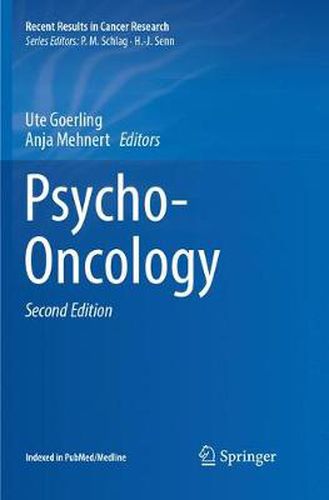Readings Newsletter
Become a Readings Member to make your shopping experience even easier.
Sign in or sign up for free!
You’re not far away from qualifying for FREE standard shipping within Australia
You’ve qualified for FREE standard shipping within Australia
The cart is loading…






This book examines in detail the psychosocial impacts of cancer and its management, explaining the relevance of psycho-oncology during all stages from diagnosis and treatment through to cancer survivorship and rehabilitation and end-of-life care. This new edition has been revised throughout to reflect the latest knowledge and places particular emphasis on patients’ perspectives and what professionals can learn from patients. Readers will find information on a variety of psycho-oncological interventions, and detailed attention is paid to quality of life and patient-reported outcomes (as key benchmarks for successful coping) and to the fear of progression during and after therapy. Entirely new chapters focus on the psychological impact of individualized therapies in oncology, communication skills training, medical risk communication, and current research approaches in psycho-oncology. Written by leading experts in the field, the book will serve as a valuable resource for all health care professionals who work with patients and their relatives in the field of psychosocial cancer care and oncology.
$9.00 standard shipping within Australia
FREE standard shipping within Australia for orders over $100.00
Express & International shipping calculated at checkout
Stock availability can be subject to change without notice. We recommend calling the shop or contacting our online team to check availability of low stock items. Please see our Shopping Online page for more details.
This book examines in detail the psychosocial impacts of cancer and its management, explaining the relevance of psycho-oncology during all stages from diagnosis and treatment through to cancer survivorship and rehabilitation and end-of-life care. This new edition has been revised throughout to reflect the latest knowledge and places particular emphasis on patients’ perspectives and what professionals can learn from patients. Readers will find information on a variety of psycho-oncological interventions, and detailed attention is paid to quality of life and patient-reported outcomes (as key benchmarks for successful coping) and to the fear of progression during and after therapy. Entirely new chapters focus on the psychological impact of individualized therapies in oncology, communication skills training, medical risk communication, and current research approaches in psycho-oncology. Written by leading experts in the field, the book will serve as a valuable resource for all health care professionals who work with patients and their relatives in the field of psychosocial cancer care and oncology.